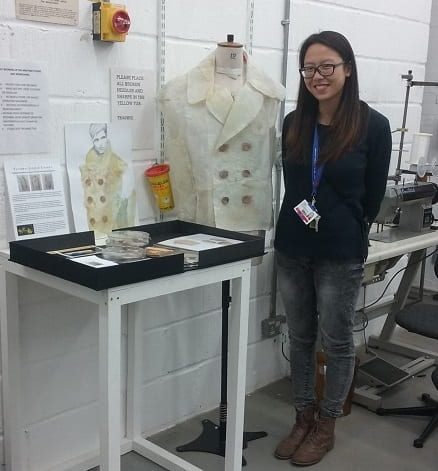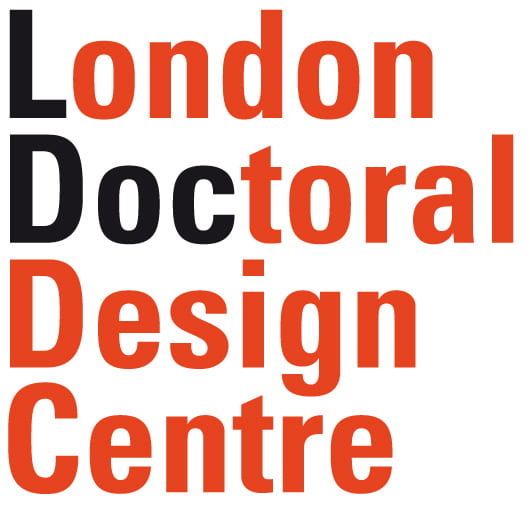At the beginning of November 2015, LDoc Cohort 2 students participated in a three-day workshop held at Chelsea College of Art and Design. During the first day of the workshop, students were introduced to the area of Design Ethnography by Dr Jo-Anne Bichard. After participant introductions, Jo-Anne spoke about the Helen Hamlyn Centre and provided case study examples demonstrating ethnography in design practice. Dr Paul Micklethwaite considered the ethics of data collecting, methods and methodology and Professor Lorraine Gamman discussed her work at the Design Against Crime Research Centre, UAL.
Day 2 allowed participants to put into practice the new skills obtained during the first day by undertaking relevant ethnographic research fieldwork; and the last day was a chance to regroup and reflect on the observations and experiences acquired.

Rachel Goldie – MA Textiles student at the RCA, examining the texture of my bacterial cellulose material
During the week of the workshop, I was showing some of my work at the Royal College of Art, and so used this opportunity to undertake my own fieldwork by conducting interviews with Rachel Goldie and Kristen Lokka Kong by my exhibition stand. I felt that this would allow me to directly interview participants who were relevant as fashion and textile designers or end-users of my research into growing bioplastics and bacterial cellulose. We were asked to think carefully about which five questions to ask participants, and to reflect back on the data collected and ultimately how successful the interviews were.

Kristen Lokka Kong – MA Textiles at the RCA, pictured by my stand after discussing her opinions on my waistcoat, produced using Synthetic Biology
It was interesting to hear Rachel and Kristen’s opinions on the texture and feel of the fabric, as well as their thoughts regarding the field of ‘Synthetic Biology’ – whether they had heard of it before and whether they would wear a garment produced in a laboratory. It would be interesting and relevant to extend this process by interviewing other key stakeholders, such as scientists and members of the general public, as potential future producers and consumers of the material. Reflecting on the fieldwork also brought up the idea of formalising a workshop with these main user groups, in order to facilitate opinions and shape ideas for my research.
Ultimately the workshop examined how and why the inclusion of people in research may benefit design work and was a fantastic space to share and reflect. Learning about Design Ethnography is a useful life skill as a researcher, and understanding who to work with, how and why and when they will need to be approached is essential. The workshop was also a great opportunity to talk to other researchers going through similar experiences and to compare and help each other with suggestions and ideas.
Victoria Geaney, RCA
